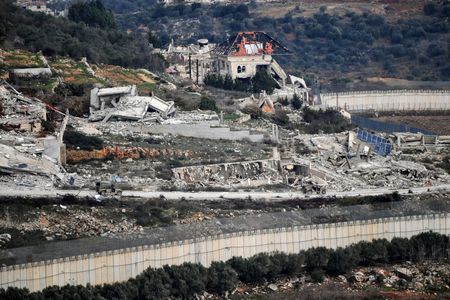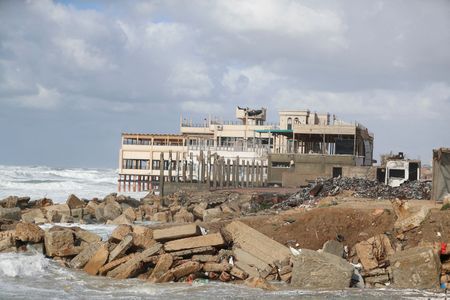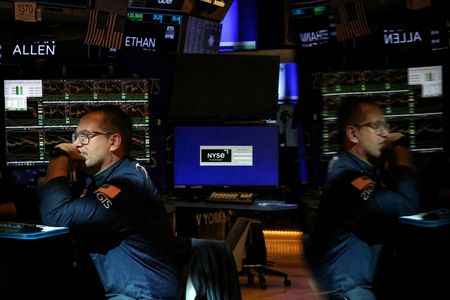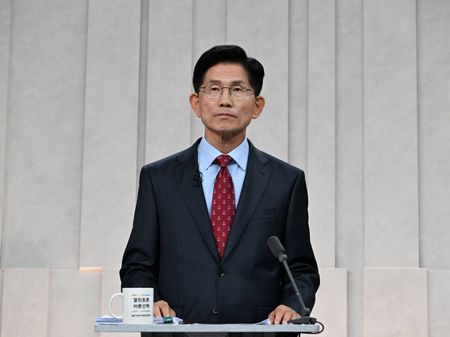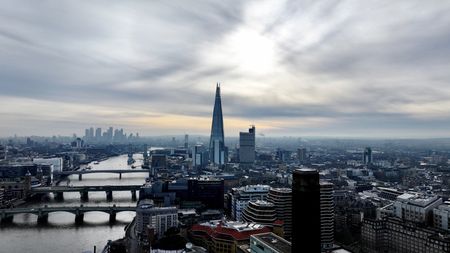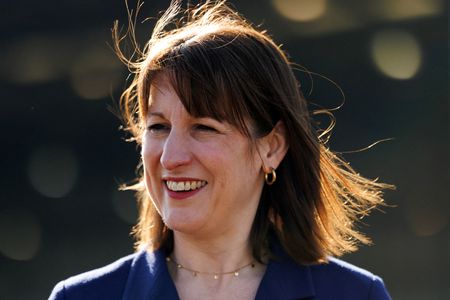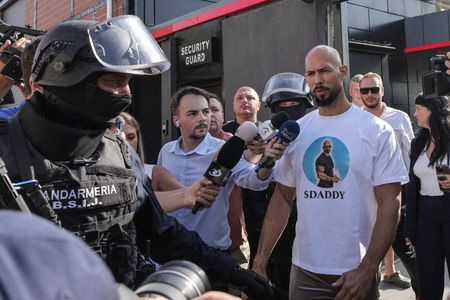By Marc Jones and Steven Scheer
LONDON/JERUSALEM (Reuters) -A historic shake-up of the Middle East is starting to draw international investors, warming to the prospects of relative peace and economic recovery after so much turmoil.
President Donald Trump’s proposal that the U.S. take over Gaza may have thrown a curveball into the mix, but the fragile ceasefire in the Israel-Hamas war, Bashar al-Assad’s ouster from Syria, a weakened Iran and a new government in Lebanon have fed hopes of a reset.
Egypt, the region’s most populous country and a key negotiator in the recent peace talks, has just managed its first dollar debt sale in four years. Not too long ago it was facing economic meltdown.
Investors have started buying up Israel’s bonds again, and those of Lebanon, betting that Beirut can finally start fixing its intertwined political, economic and financial crises.
“The last few months have very much reshaped the region and set in play a very different dynamic in a best-case scenario,” Charlie Robertson, a veteran emerging market analyst at FIM Partners, said.
The question is whether Trump’s plan for Gaza inflames tensions again, he added.
Trump’s call to “clean out” Gaza and create a “Riviera of the Middle East” in the enclave was met with international condemnation.
Responding to the uproar, Egypt said on Sunday it would host an emergency Arab summit on February 27 to discuss what it described as “serious” developments for Palestinians.
Credit rating agency S&P Global has signalled it will remove Israel’s downgrade warning if the ceasefire lasts. It acknowledges the complexities, but it is a welcome possibility as Israel readies its first major debt sale since the truce was signed.
(UN)PREDICTABILITY
Michael Fertik, a U.S. venture capitalist and CEO of artificial intelligence firm Modelcode.ai, said the easing of tensions had contributed to his decision to open an Israeli subsidiary.
He is eager to hire skilled local software programmers, but geopolitics have been a factor too.
“With Trump in the White House, no one doubts the United States has Israel’s back in a fight,” he said, explaining how it provided predictability even if the war re-ignites.
Having largely stayed away when Israel ramped up spending on the war, bond investors are also starting to come back, central bank data shows.
Economy Minister Nir Barkat told Reuters in an interview last month that he will be seeking a more generous spending package focusing on “bold economic growth.”
The snag for stock investors though, is that Israel was one of the best performing markets in the world in the 18 months after the October 7, 2023 attacks. Since the ceasefire – which has coincided with a sizable U.S. tech selloff – it has been in retreat.
“During 2024, I think we learned that the market is not really afraid of the war but rather the internal political conflict and tensions,” said Sabina Levy, head of research at Leader Capital Markets in Tel Aviv.
And if the ceasefire buckles? “It is reasonable to assume a negative reaction.”
Some investors have already reacted badly to Trump’s surprise Gaza move.
Yerlan Syzdykov, head of emerging markets at Europe’s biggest asset manager Amundi, said his firm had bought up Egypt’s bonds after the ceasefire deal, but Trump’s plan – which foresees Cairo and Jordan accepting 2 million Palestinian refugees – has changed that.
Both countries have baulked at Trump’s idea but the risk is, Syzdykov explained, that the U.S. president uses Egypt’s reliance on bilateral and IMF support to try to strong arm the country given its recent brush with a full-blown economic crisis.
Reducing the attacks by Yemen’s Houthi fighters on ships in the Red Sea also remains crucial. The country lost $7 billion – more than 60% – of its Suez Canal revenues last year as shippers diverted around Africa rather than risk ambush.
“Markets are unlikely to like the idea of Egypt losing such (bilateral and multilateral) support, and we are taking a more cautious stance to see how these negotiations will unfold,” Syzdykov said.
REBUILD AND RESTRUCTURE
Others expect the rebuilding of bombed homes and infrastructure in Syria and elsewhere to be an opportunity for Turkey’s heavyweight construction firms.
Trump’s Middle East envoy, Steve Witkoff, has said it could take 10 to 15 years to rebuild Gaza. The World Bank, meanwhile, puts Lebanon’s damage at $8.5 billion, roughly 35% of its GDP.
Beirut’s default-stricken bonds more than doubled in price when it became clear in September that Hezbollah’s grip in Lebanon was being weakened and have continued to rise on hopes the country’s crisis is addressed.
Lebanon’s new President Joseph Aoun’s first state visit will be to Saudi Arabia, a country seen as a potential key supporter, and one that likely sees this as an opportunity to further remove Lebanon from Iran’s sphere of influence.
Bondholders say there have been preliminary contacts with the new authorities too.
“Lebanon could be a big story in 2025 if we make progress towards a debt restructuring,” Magda Branet, head of emerging markets fixed income at AXA Investment Managers, said.
“It is not going to be easy” though she added, given the country’s track record, the $45 billion of debt that needs reworking and that Lebanese savers could see some of their money seized by the government as part of the plan.
(Reporting by Marc Jones and Steve Scheer; Editing by Sharon Singleton and William Mallard)

